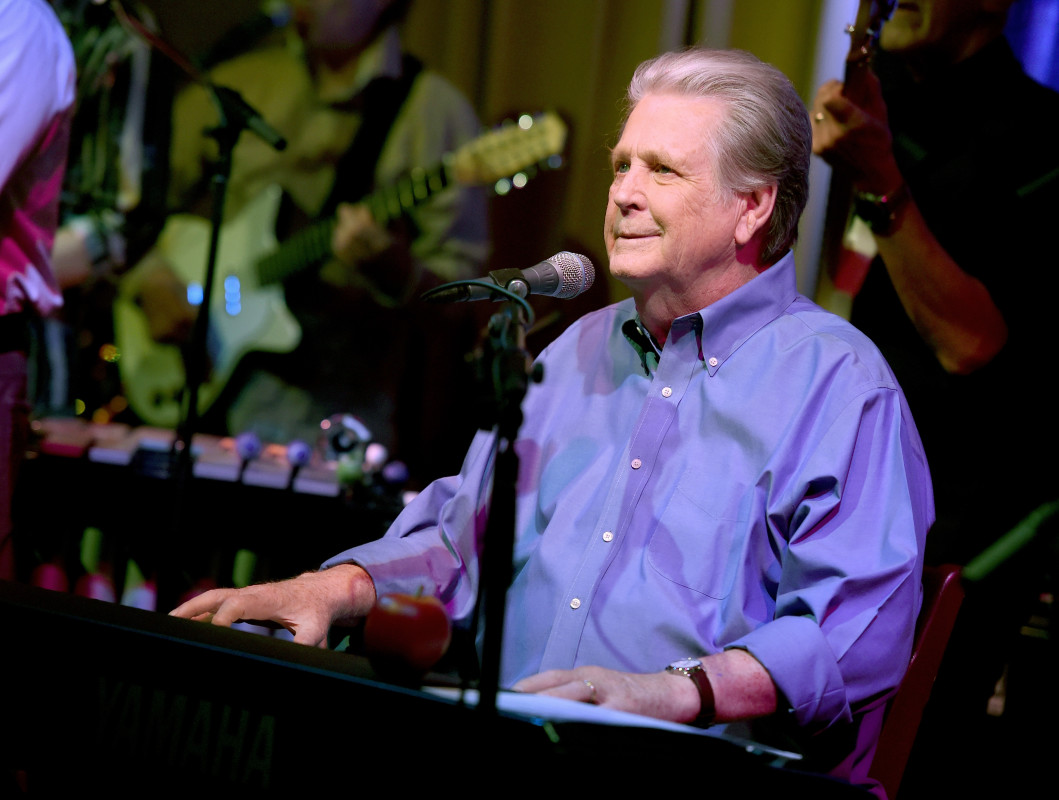
The Unfulfilled Opportunity
In 1988, the Beach Boys were given a rare and exciting opportunity: to write a song for a major Tom Cruise movie. For Brian Wilson, the band’s legendary songwriter, this was an opportunity he seemed genuinely excited about. It was a chance to contribute to what could be one of the band’s most successful songs in decades. However, what started as a promising project quickly took a tragic turn, leaving Wilson with lasting regret.
The story comes from John Mason, an entertainment lawyer who worked closely with the band. In his memoir, Crazy Lucky, Mason reveals the details of how Wilson's mental health struggles ultimately prevented him from being involved in the creation of the group’s final No. 1 hit. This hit would become the iconic song "Kokomo," which went on to achieve massive commercial success.
Mason recalls that Wilson often spoke about his past struggles with drug use. “Brian often said to me, as sad as it sounds ... 'I fried my brain. I took too many drugs,'” he shared. “Brian couldn't get up in the morning without somebody getting him up. He couldn't eat healthily without somebody giving him something healthy to eat.” These statements highlight the extent of Wilson's challenges during this period.
Despite his excitement about the project, Wilson’s condition made collaboration difficult. The opportunity came when the band was approached to write a song for the movie Cocktail. The resulting track, "Kokomo," became a huge hit, but it was written by John Phillips, Scott McKenzie, Mike Love, and Terry Melcher — not Brian Wilson.
Mason remembers the moment when the band approached Wilson about the project. “Mike and Carl came into my office and said to Brian, 'Hey, we have the opportunity to write a song for this movie, Cocktail.' It's going to be starring Tom Cruise. It's really great. We'd love you to join us. And Brian was really excited. He said, 'Oh, I'd love to do that.'"
However, things changed later that evening when Wilson called Mason and expressed hesitation. “Brian called and said, 'I shouldn't do that.' Dr. Landy said I shouldn't do that.” This decision, influenced by Dr. Eugene Landy, had long-lasting consequences. “Well, that turned out to be 'Kokomo,' the biggest hit the Beach Boys had had probably forever. And Brian felt really badly about not working on 'Kokomo.'"
The Influence of Dr. Eugene Landy
Dr. Eugene Landy played a significant role in Wilson’s life, and his influence has been a topic of debate among fans and music historians. According to Mason, Landy had a complex impact on Wilson. “The good and bad of Dr. Eugene Landy in Brian's life was that he motivated Brian to become a participant in his own life,” Mason explained. “But the bad part was that, as time went by and years went by, Dr. Landy expected more and more to replace Brian in the Beach Boys.”
Landy’s presence in Wilson’s life meant that he was not allowed to make decisions or take actions without a handler being present. This control over Wilson’s personal and professional life limited his ability to engage fully with opportunities like the Cocktail project.
Mason reflects on how Landy’s influence, while initially helpful, eventually led to more harm than good. “Brian wasn't allowed to do anything without a Landy handler being with him.” This level of control likely contributed to Wilson’s feelings of exclusion and regret regarding the creation of "Kokomo."
Legacy and Reflections
Wilson’s story is a poignant reminder of the challenges faced by artists dealing with mental health issues. His passion for music and desire to contribute to the Beach Boys’ legacy were evident, but external factors and personal struggles ultimately shaped the course of his career.
Even though "Kokomo" became a defining moment for the band, it also highlighted the missed opportunity for Wilson to be a part of that success. His relationship with Landy and the limitations placed on his autonomy are key elements in understanding the complexities of his life and career.
Mason’s account provides a deeper insight into the dynamics within the Beach Boys during this period. It underscores the importance of support systems and the delicate balance between guidance and independence. While the song "Kokomo" remains a cultural touchstone, it also serves as a bittersweet chapter in the history of one of music’s most iconic bands.

Post a Comment